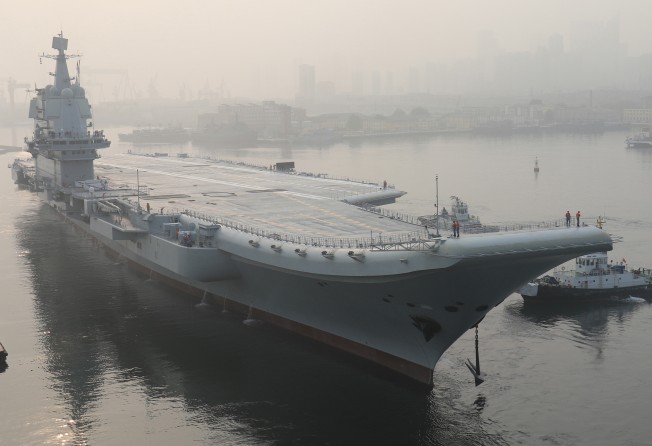Pentagon must think again about war games snub to Chinese navy
As a fast-rising naval power, China should not have been excluded from the exercises by the United States as they are an opportunity for the two nations to cooperate and ease tensions

China has been excluded by the United States from taking part in the world’s largest multinational navy exercises as a penalty for claimed militarising of the South China Sea.
Beijing sees its deployment of missiles, placement of military equipment and landing of bombers on artificial islands in the region as necessary to protect sovereignty.
With American warships and surveillance vessels regularly traversing the waters, the latest on Sunday involving a destroyer and a cruiser near the Paracel Islands, also known as the Xisha Islands, there is every need for the sides to engage to prevent mishaps. Kicking the People’s Liberation Army Navy out of a process meant to build trust and cooperation is short-sighted.
Foreign Minister Wang Yi understandably called the decision by the Pentagon “non-constructive”. He made the remark in Washington after meeting US Secretary of State Mike Pompeo, who said the issue of the South China Sea had been discussed.
But China’s island-building and construction of military outposts in the disputed region is not new and the Chinese navy took part in the past two Rim of the Pacific war games. The biggest change has been the election of Donald Trump to the US presidency and a markedly more hawkish stand towards Beijing.
US warships have entered the disputed waters three times this year in the name of “freedom of navigation”. But the operations are, as Beijing points out each time, a provocation; China has never prevented cargo and passenger ships from using international waters.
The war games decision also comes at a crucial time in negotiations to prevent a trade war and with the Trump administration having reneged on an agreement on official exchanges with Taiwan. China, as North Korea’s closest ally, also has an integral role in Korean peace talks.
The Rim of the Pacific exercises, hosted by the US and held every two years in the waters off Hawaii and California, involve more than two dozen nations. They bring navies together to strengthen military-to-military partnerships, improve readiness for a wide range of operations and enhance the way countries communicate and work together.
China, as a fast-rising naval power, should not be excluded. Its warships have earned praise for protecting sea lanes in the Indian Ocean and anti-piracy operations off the Horn of Africa.
As China’s navy modernises and expands, so will international expectations for its participation in helping with humanitarian crises and protecting navigational routes. Nations with shared goals have to work together. For China and the US, that means easing tensions and cooperating. The Rim of the Pacific exercises are a perfect venue and the Pentagon should reassess its decision.